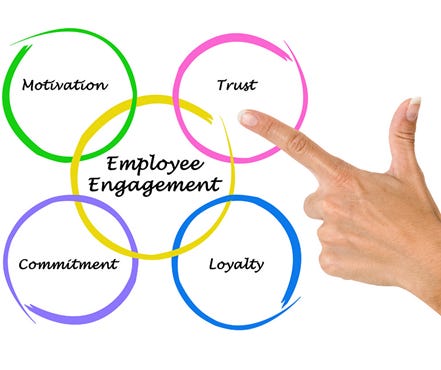The State of DEIB in 2023: Challenges, Opportunities, and Best Practices

Diversity, equity, inclusion, and belonging (DEIB) are essential values for any organization that wants to thrive in the 21st century. However, achieving and maintaining DEIB is not easy, especially in the face of social, economic, and political challenges that threaten to undermine the progress made so far. In this blog post, we will explore some of the key challenges, opportunities, and best practices for DEIB in 2023.
Challenges
- Budget cuts: One of the major challenges for DEIB is the lack of adequate funding and resources to support its initiatives and programs. For example, in Florida, the state government has proposed to slash the budget for DEIB which would affect the hiring and retention of diverse faculty and staff, the provision of scholarships and grants for underrepresented students, and the development of curricula and training that promote DEIB. This sets a wrong precedence for other states and institutions that may follow suit and jeopardize the future of DEIB.
- Backlash: Another challenge for DEIB is the resistance and opposition from some segments of society that view it as a threat to their status quo or identity. For example, in Texas, a bill has been introduced that would ban the teaching of critical race theory and other topics related to DEIB in public schools. This would limit the exposure and education of students to different perspectives and experiences that are essential for fostering DEIB. Moreover, some groups have launched campaigns and lawsuits to challenge the policies and practices of DEIB in various sectors, such as education, health care, and technology. These actions create a hostile and divisive environment for DEIB advocates and beneficiaries.
- Pandemic: A third challenge for DEIB is the ongoing impact of the COVID-19 pandemic on the health and well-being of marginalized communities. The pandemic has exposed and exacerbated the disparities and inequities that exist in access to health care, education, employment, housing, and other social determinants of health. Moreover, the pandemic has increased the risk of discrimination and violence against certain groups, such as Asian Americans, who have been scapegoated and blamed for the spread of the virus. These factors have negatively affected the mental health and morale of many people who are already facing multiple forms of oppression.
Opportunities
- Innovation: Despite the challenges, there are also opportunities for DEIB in 2023. One of them is the potential for innovation and creativity that arises from embracing diversity and inclusion. Research has shown that diverse teams produce better outcomes than homogeneous ones in terms of problem-solving, decision-making, creativity, and innovation. Moreover, inclusive organizations attract and retain more talent, customers, partners, and investors than exclusive ones. Therefore, investing in DEIB can give organizations a competitive edge and a positive reputation in the market.
- Collaboration: Another opportunity for DEIB is the possibility for collaboration and solidarity among different stakeholders who share a common vision and goal. For example, in response to the budget cuts in Florida, several universities have joined forces to form a coalition that advocates for DEIB funding and resources. Similarly, in response to the backlash in Texas, several educators have formed a network that supports each other in teaching DEIB topics and resisting censorship. Moreover, in response to the pandemic, several communities have organized mutual aid groups that provide assistance and support to those in need. These examples show how collaboration can amplify the voice and impact of DEIB efforts.
- Transformation: A third opportunity for DEIB is the chance for transformation and change that emerges from challenging the status quo and demanding justice. For example, in 2020, the Black Lives Matter movement sparked a global wave of protests and activism against systemic racism and police brutality. This led to various reforms and changes in policies, practices, attitudes, and behaviors that aim to promote racial justice and equity. Similarly, in 2021, the #MeToo movement inspired a worldwide movement of women speaking out against sexual harassment and violence. This resulted in various actions and initiatives that seek to empower women and end gender-based violence. These movements show how transformation can occur when people mobilize for a common cause.
Best Practices
- Education: One of the best practices for DEIB is to provide continuous education and learning opportunities for all members of an organization or community. Education is vital for raising awareness, increasing knowledge, developing skills, changing attitudes, and fostering behaviors that support DEIB. Education can take various forms, such as workshops, seminars, webinars, podcasts, books, articles, videos, and games. Education should be relevant, interactive, engaging, and inclusive. Education should also be tailored to different audiences, levels, and needs. Education should not be a one-time event, but a lifelong process.
- Evaluation: Another best practice for DEIB is to conduct regular evaluation and monitoring of the impact and effectiveness of DEIB initiatives and programs. Evaluation is important for measuring progress, identifying strengths, addressing weaknesses, celebrating successes, and learning from failures. Evaluation can be used in various methods, such as surveys, interviews, focus groups, observations, tests, and analytics. Evaluation should be transparent, objective, and participatory. Evaluation should also be aligned with the goals, objectives, and indicators of DEIB. Evaluation should not be a punitive exercise, but a constructive one.


Explore the impactful role of SafeSpace in fostering an inclusive workplace that celebrates diversity. This platform establishes a nurturing atmosphere for employees with diverse backgrounds, empowering them to readily seek and receive assistance without any hesitation.
Originally published at https://www.linkedin.com.




